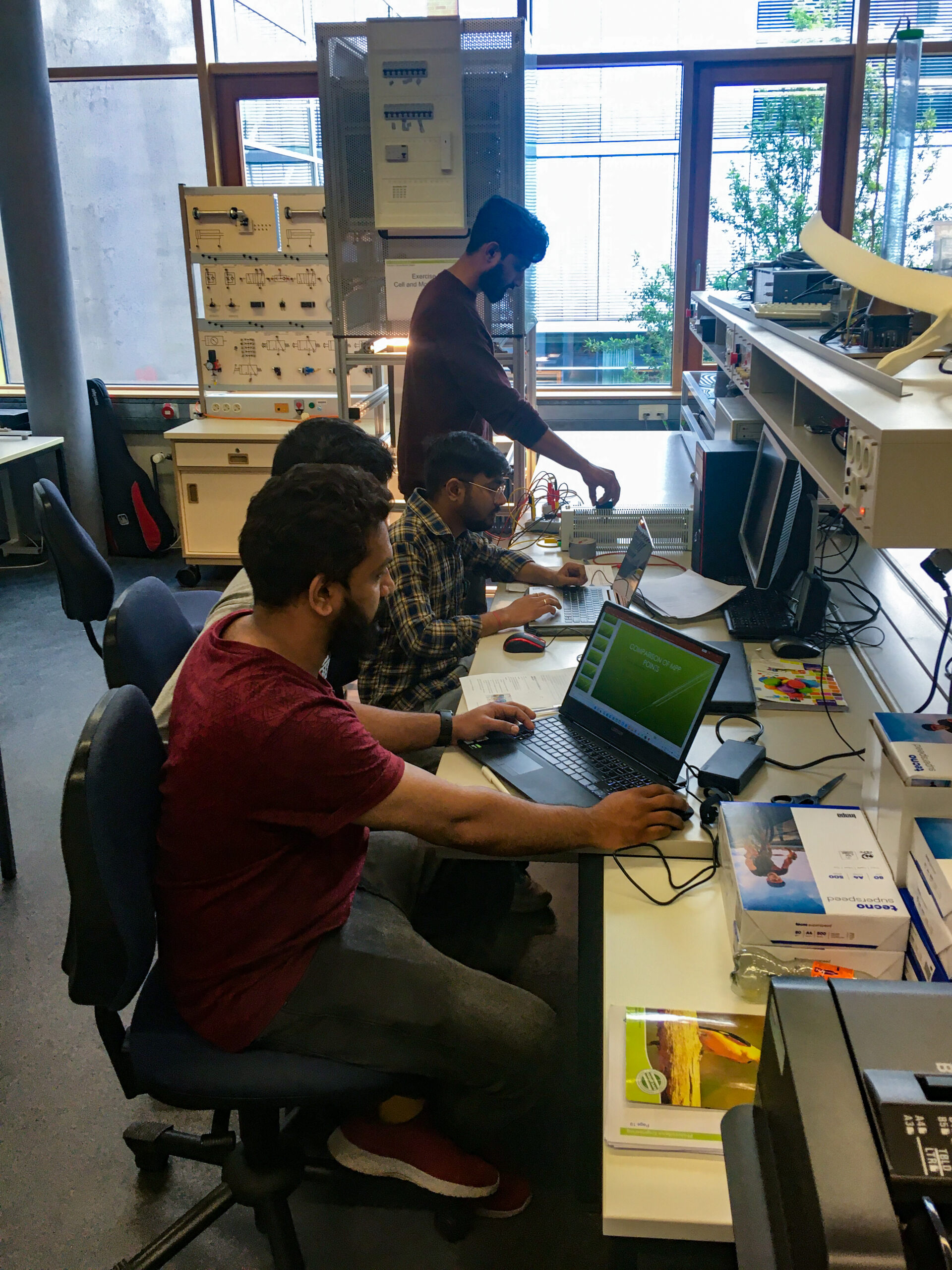Application phase goes into the next round
Cutting-edge topics from the energy and building sector
The application phase for the two international Master’s degree courses at Ansbach University of Applied Sciences’ Feuchtwangen Energy Campus opens again in May. The Smart Energy Systems (SES) and Sustainable Building Systems (SBS) courses address highly topical issues in the energy and building sectors.
SBS course and campus director Prof. Dr.-Ing. Haresh Vaidya summarizes: “The building sector urgently needs to become climate-neutral. You can’t achieve this with standard solutions. We need out-of-the-box thinking. Successful building refurbishment requires knowledge in many different areas. And this interdisciplinary knowledge is precisely what this degree course is all about.”
Accordingly, a comprehensive understanding of sustainable building practices is taught. Students learn to integrate energy-efficient technologies and renewable energy sources into construction projects, taking into account the entire life cycle of a building. The interdisciplinary approach of the degree program promotes cooperation between different disciplines in order to develop holistic solutions for sustainable construction.
In addition to technological aspects, legal framework conditions, ethical considerations and social aspects are also addressed. Through practical application and the handling of real challenges, students are prepared to manage sustainable construction projects in professional environments.
“Due to the English language and contact with students from all over the world, our Smart Energy Systems and Sustainable Building Systems Master’s courses are particularly suitable for Germans to gain initial experience in an international environment,” says SES course director Prof. Dr.-Ing.
The Smart Energy Systems course aims to equip engineers and scientists with expert knowledge of energy systems. The focus is on the optimization and interaction of the individual components of the system. Graduates are prepared for future positions in the fields of intelligent energy systems and related industries. The programme takes into account the global transition from fossil to renewable energy sources and provides comprehensive skills to meet the requirements of decarbonized, decentralized and digital energy systems.
In addition to technological and economic skills, graduates also acquire knowledge in the application of simulation systems, artificial intelligence and advanced programming skills. They are able to develop new processes, products and business models in the smart energy industry and solve problems in the traditional energy sector.
“With over 450 applicants for the two courses last year, the bar is set high,” says Campus Coordinator Dr. Gerd Hofmann. “We at the Feuchtwangen campus are therefore looking forward to seeing how many applications we receive this year.”

